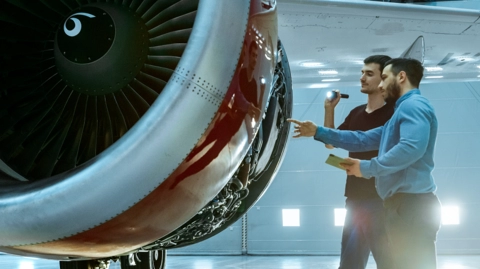
When it comes to advanced vehicle safety, can nervousness ever be a good thing?
contact us

Written by Steve Brown - Global Director at MacDermid Alpha Electronics Solutions

It is commonly said that ignorance is bliss. But is it really better to be blissfully unaware of risks or armed with knowledge, yet fearful of every potential pitfall in life? As always, context is everything, and rather than engaging in a philosophical discussion, we will consider how this predicament relates to autonomous vehicles and the evolution of the electric vehicle supply chain.

Here’s a radical question: how would you feel about allowing your loved ones to travel on a busy highway in a driverless vehicle? Chances are you would take some persuading. Suddenly regular cars seem like a safer option. All of us are aware that driverless technology is on the horizon and while we understand it conceptually, few people are fully emotionally prepared for its arrival. My understanding of automotive technology makes me all too aware of the margin for error and so I must admit that this scenario does trigger some nervousness in me, despite the enormous progress that has been made.
Nervousness is not something that concerns me too much, however. In fact, I would hedge my bets that many inventors and engineers, throughout history, have at some point, been nervous about their own creations.

Take aeroplanes for instance. Statistically speaking, air travel is an incredibly safe form of transport. Airline companies recognize the importance of maintaining rigorous safety standards, since one single accident can have a major impact on anyone affected and destroy a hard-earned reputation; undermining confidence in that airline and its ability to provide customers with a safe flying experience.
I have read that aerospace engineers can still be nervous flyers, possibly because they are intrinsically aware of what can go wrong and know all of the inner workings of an aircraft. This doesn’t make me afraid of flying. Quite the opposite; I know that this nervousness prevents complacency; engineers refuse to leave a single stone unturned, and that passenger safety is given the degree of attention and concern that it rightly deserves.
In an age of automotive autonomy, safety is set to receive similar scrutiny, proving that whether you are novice passenger of autonomous vehicles, or an experienced expert, apprehension is normal and what keeps safety standards stringent.
Advanced safety systems hold the key to autonomous vehicle safety and will be decisive in the widespread acceptance of this new form of transport. As with any transport it carries risks, however, the upshot of understanding the potential risks is that preventative action can be taken with the right knowledge and expertise. For this to happen, however, OEMs must make it a priority. With the growing importance of safety to manufacturers, in-depth knowledge of advanced safety systems is no longer a luxury but a matter of future survival in an increasingly competitive vehicle manufacturing landscape.
Let me explain. In the past, a background understanding of safety systems was sufficient. Leaving this to chance in the future might be a big gamble for OEMs, who could face huge reputational and financial costs should they fall short of the required safety standards.
When customers look at a vehicle, they do not see the ecosystem of different suppliers that have produced each and every component within the vehicle, all they see is the manufacturer’s logo. A company brand can be a major asset but in the event of a safety incident, it can also act as a lightning rod for media and public attention.
Automotive businesses are at different stages in their journey and can be categorized in one of the following ways:
a) they are looking to buy a black box and plug it in – in this scenario, they want ADAS to perform a core function and that’s the key requirement
b) they are aware of some materials they would rather not use as part of the design, but don’t yet have a comprehensive knowledge of all of the available hardware options
c) they possess a wealth of knowledge about materials and would like to specify exact hardware solutions
d) they want to build ADAS products themselves and integrate them into the vehicle design.
While very few businesses fall into the last category, we are seeing a lot of organizations that stand within b and c, a state of affairs that speaks volumes about how OEMs and Tier 1s are looking at vehicle electronics, safety and reliability.

The future of vehicle autonomy depends on organizations like MacDermid Alpha Electronics Solutions and MacDermid Alpha Electronics Solutions forging close relationships with OEMs, to help them understand the relationship between hardware materials and vehicle performance and reliability.
We have a unique knowledge of both materials and electronics, and how different components interact at a systems-level to effectively advise our customers and their supply chains on optimal safety solutions. When done correctly, this will ensure a more successful transition to electric and autonomous vehicles by helping to overcome concerns around safety.
When it comes to advanced safety systems, rather than leaving things to chance, my view is that taking control of the granular details wins every time.
Download our latest ADAS eBook to learn how OEMs can adapt to a new era of automotive.